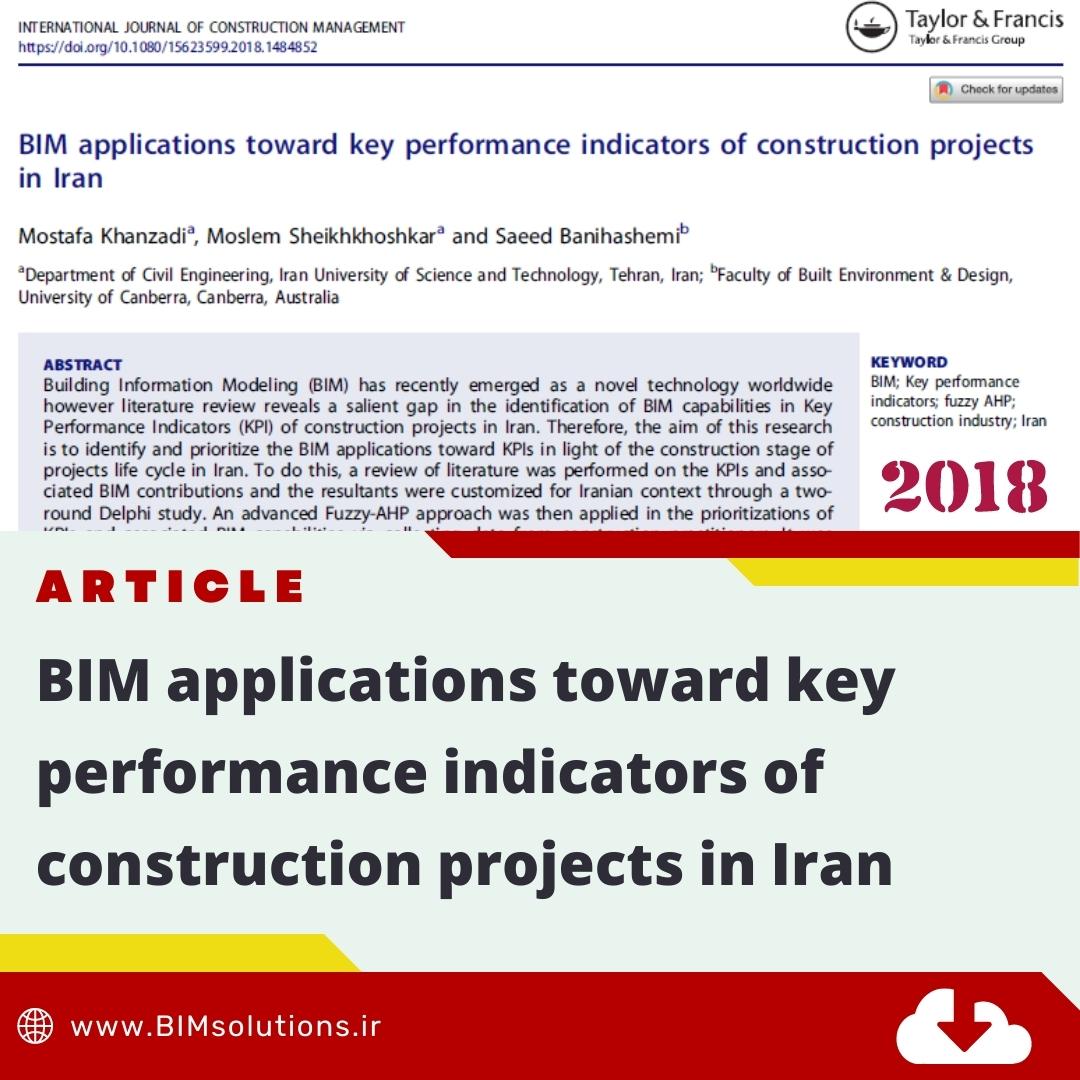کتابخانه مراجع و مقالات
BIM applications toward key performance indicators of construction projects in Iran
- مدیرارشد
- کتابخانه مقالات انگلیسی
Mostafa Khanzadia, Moslem Sheikhkhoshkara and Saeed Banihashemib
ABSTRACT
Building Information Modeling (BIM) has recently emerged as a novel technology worldwide however literature review reveals a salient gap in the identification of BIM capabilities in Key Performance Indicators (KPI) of construction projects in Iran. Therefore, the aim of this research is to identify and prioritize the BIM applications toward KPIs in light of the construction stage of projects life cycle in Iran. To do this, a review of literature was performed on the KPIs and associated BIM contributions and the resultants were customized for Iranian context through a tworound Delphi study. An advanced Fuzzy-AHP approach was then applied in the prioritizations of KPIs and associated BIM capabilities via collecting data from construction practitioners. It was identified that quality improvement, sustainable construction and construction cost reduction are the top three KPIs that can be benefitted from BIM applications in the construction stage of building projects. It was also concluded that project coordination, clash detection, 4D and 5D BIM are the subsequent beneficial effects of BIM on the construction project KPIs in Iran. This study is a point of departure for BIM-based research and its managerial perspectives outlining an insight toward the application of BIM in the construction projects of Iran.
ABSTRACT
Building Information Modeling (BIM) has recently emerged as a novel technology worldwide however literature review reveals a salient gap in the identification of BIM capabilities in Key Performance Indicators (KPI) of construction projects in Iran. Therefore, the aim of this research is to identify and prioritize the BIM applications toward KPIs in light of the construction stage of projects life cycle in Iran. To do this, a review of literature was performed on the KPIs and associated BIM contributions and the resultants were customized for Iranian context through a tworound Delphi study. An advanced Fuzzy-AHP approach was then applied in the prioritizations of KPIs and associated BIM capabilities via collecting data from construction practitioners. It was identified that quality improvement, sustainable construction and construction cost reduction are the top three KPIs that can be benefitted from BIM applications in the construction stage of building projects. It was also concluded that project coordination, clash detection, 4D and 5D BIM are the subsequent beneficial effects of BIM on the construction project KPIs in Iran. This study is a point of departure for BIM-based research and its managerial perspectives outlining an insight toward the application of BIM in the construction projects of Iran.



